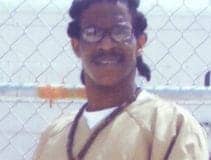Tags 13th Amendment to the Constitution
Tag: 13th Amendment to the Constitution
Mass incarceration for profit: The dual impact of the 13th Amendment...
The 13th Amendment reads in Section One: “Neither slavery nor involuntary servitude, except as a punishment for crime whereof the party shall have been duly convicted, shall exist within the United States, nor any place subject to their jurisdiction.”
Understanding this contradictory character of the 13th Amendment sheds light on the utilization of the criminal justice system in the perpetuation of bondage for the purpose of institutional racism and class exploitation.
Assata Shakur: She who struggles
Meet a sista, comrade, soldier, warrior, guerrilla who exemplifies the meaning of revolution through the life that she lives, transforming from the day of her birth to this present day. Born with the slave name JoAnne Deborah Byron, after her emancipation from the shackles of capitalism she took on the name we’re most familiar with, Sista Assata Olugbala Shakur – Assata meaning “she who struggles,” Olugbala meaning “love for the people,” Shakur meaning “the thankful.”
Amend the 13th: Abolish Legal Slavery in Amerika Movement Mission Statement
Development of the concept and strategy for the “amend the 13th: abolish “legal” slavery in Amerika movement” began in November 2013 following the close of the third hunger strike here in California, after holding discussions and issuing statements with other think tank coordinators on the next logical step for our anti-prison industrial slave complex (PISC) struggle.
Inside a CCA private prison: Two slaves for the price of...
In 1973, the National Advisory Commission on Criminal Justice Standards and Goals issued a report which stated in part: “The prison, the reformatory and the jail have achieved only a shocking record of failure. There is overwhelming evidence that these institutions create crime rather than prevent it.” This same report stated directly: “No new institutions for adults should be built and existing institutions for juveniles should be closed.”







